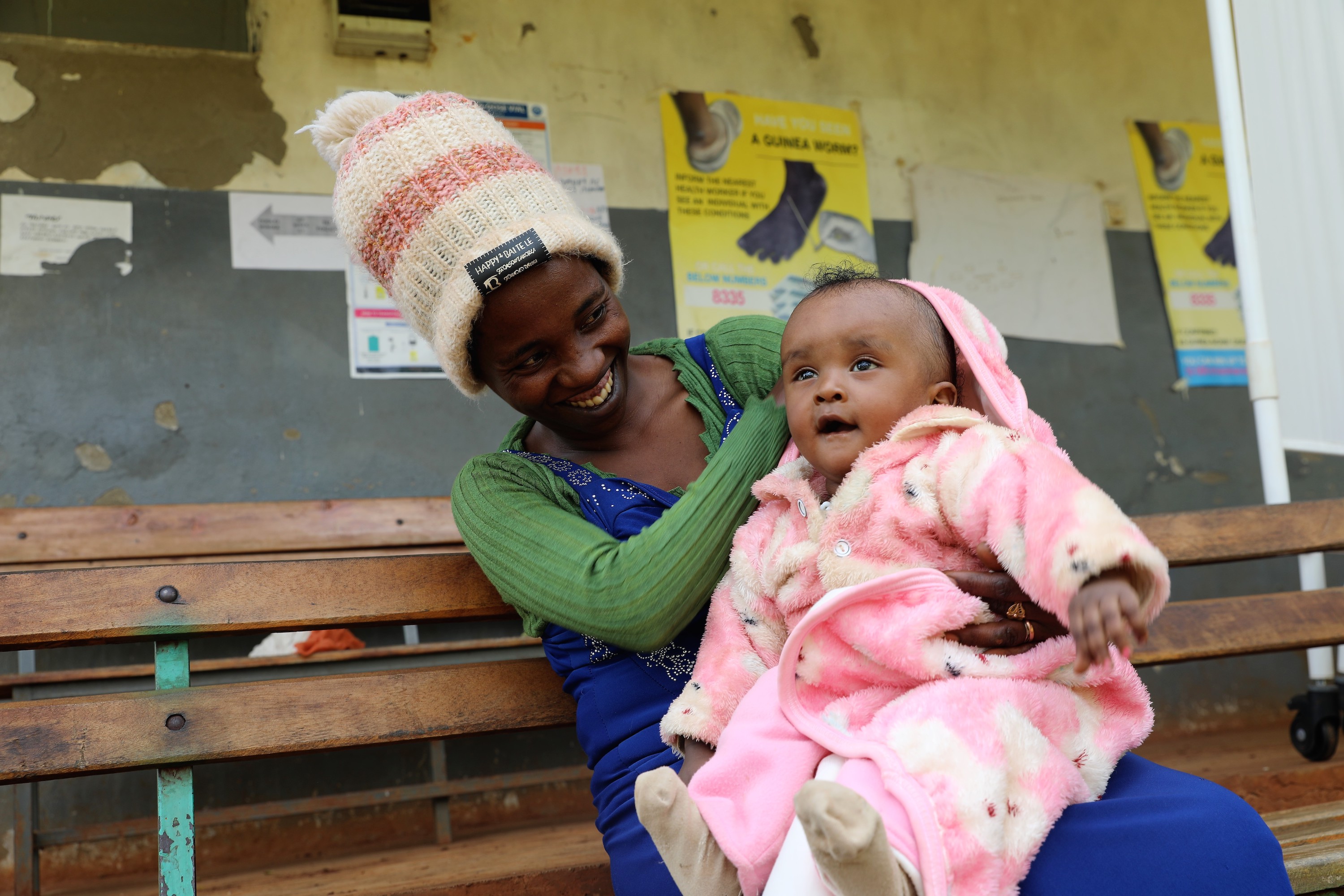Quality health care service for a better life
Temelesh Mulugeta 36, often takes her eight-month-old baby, Nathan, to Chelelektu health centre whenever he has a bout of an illness such as coughing. ‘‘There was a shortage of medical supplies at the centre,’’ she recalls. The mother of three knew the challenges as she used to take her older children to the centre but there was no alternate health facility in her vicinity. “I constantly worried about how to bear with such ill fate when babies are not cared for?”, she asks. Lack of medical equipment at the centre was critical that she at times had to travel to a city at a far distance, 70 kilometres, with her sick child on her shoulder.
Since its establishment many years ago, Chelelektu health centre, located in Gedeo Zone, South Nations Nationalities and Regional State, about 432 kilometres south of Addis Ababa, has been serving the target community and beyond. It provided services with scarce resources. The population increase over time, coupled with financial constraints, brought about service inadequacy, which challenged the community.
 Tamirat, the Health Centre Director, remembers how the health centre failed to serve patients, especially children, and babies like Nathan. He says, “The centre was not able to give compassionate care to patients. There was no adequate equipment to treat pregnant and lactating mothers and they travelled long distances to look for options paying for unexpected expenses for transportation and related things.’’ He says those who could not afford delivered at home and were exposed to severe health complications. He further says that the centre could not care for children under the age of five as the laboratory didn’t have all the necessary equipment.
Tamirat, the Health Centre Director, remembers how the health centre failed to serve patients, especially children, and babies like Nathan. He says, “The centre was not able to give compassionate care to patients. There was no adequate equipment to treat pregnant and lactating mothers and they travelled long distances to look for options paying for unexpected expenses for transportation and related things.’’ He says those who could not afford delivered at home and were exposed to severe health complications. He further says that the centre could not care for children under the age of five as the laboratory didn’t have all the necessary equipment.
Cognizant of the problem, World Vision Ethiopia stepped in as a reliever. With funds obtained from USAID, it started to implement an Integrated Multi-Sectoral Response for Drought and Conflict Affected Vulnerable Communities project in 2018. The project has been supporting the Chelelektu health centre and other 29 health centres in the Gedeo Zone of the Southern Nations Nation and Peoples Region, and the Gujji Zone in the Oromia region. It provided microscopes, laboratory equipment, test kits, infection prevention materials, various printable formats, and stationary materials for office use. The organization also trained and hired health workers in the two zones to strengthen the support the health centres are providing to the communities.
 Tamirat says there is a significant change after World Vision’s intervention. “I can confidently say that we are giving health care service to the communities. Pregnant women no longer travel a long distance, children under the age of five are receiving better care, and our staff are being equipped with empathy, communication skills, work ethic, etc. Temelesh is very happy because her worries were gone for good and she is relieved now. She says, “I no longer worry about my children’s health for I know they will get better treatment because of World Vision’s support. Nathan is healthy and affectionate now,” she says flashing a smile on her face.
Tamirat says there is a significant change after World Vision’s intervention. “I can confidently say that we are giving health care service to the communities. Pregnant women no longer travel a long distance, children under the age of five are receiving better care, and our staff are being equipped with empathy, communication skills, work ethic, etc. Temelesh is very happy because her worries were gone for good and she is relieved now. She says, “I no longer worry about my children’s health for I know they will get better treatment because of World Vision’s support. Nathan is healthy and affectionate now,” she says flashing a smile on her face.
Thousands of children in Gedeo and Guji are currently getting adequate health care at the centre. This year alone, World Vision has reached 54,005 people with better health care service of which 35,000 were Internally Displaced Persons (IDP) that returned to their respective zones.